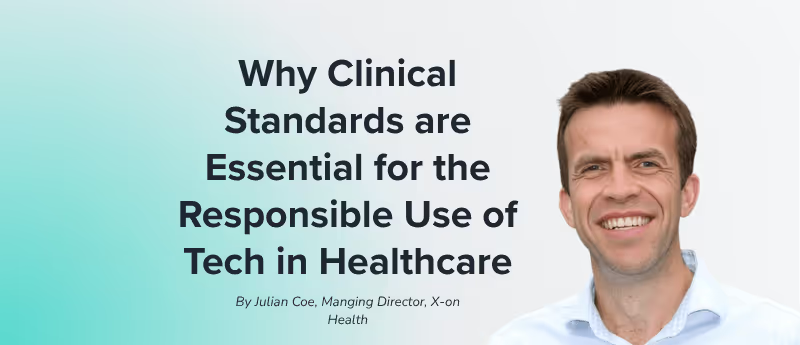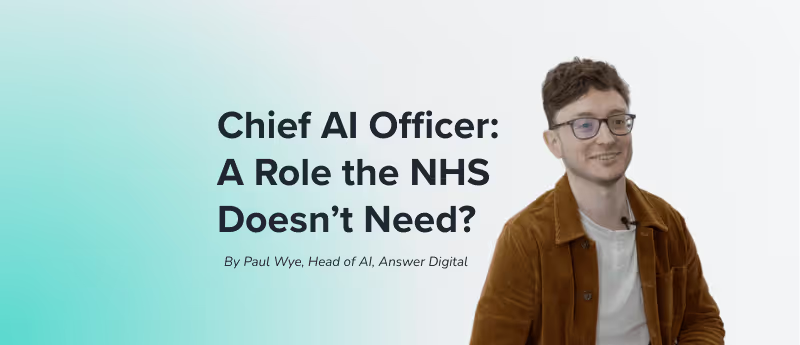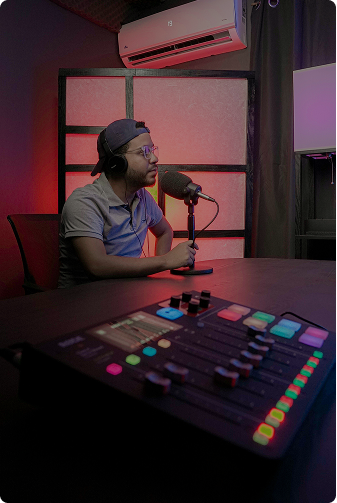Conversational AI for medical phone consultations
Conversational AI for medical phone consultations
.png)
In this interview, we speak with Maria González Manso (Tucuvi; Madrid, Spain) about the useful applications of conversational AI in medical consultations. Maria discusses some interesting use cases of her technology and how concerns over lack of human empathy may be overcome.
Could you tell us a little bit about why you founded Tucuvi?
Based on my personal experiences and professional insights gained during my time at Medtronic, it has become more evident to me that poor patient outcomes are not primarily caused due to a lack in innovative diagnostic machinery or groundbreaking pharmaceuticals (though undoubtedly, these are crucial aspects). Rather, the crux of the matter lies in two essential facets that healthcare practitioners find themselves wanting: time and comprehensive data. Healthcare providers currently find themselves operating at maximum capacity, grappling with a scarcity of time to adequately cater to the needs of their diverse patient population. This is vividly exemplified by the elongated waiting lists for consultations or medical tests that extend over the span of several months. At the same time, there exists an information gap about patients' health statuses between consultations. The lack of insight during these intervals poses a significant challenge to delivering tailored medical care in time. How can healthcare professionals offer personalized and preventive care when they have no clue about what is going on outside of the consultation? Especially when they are allotted a mere seven-minute consultation window? I really found it so unfair that so many patients went through delayed diagnosis or medical care because of these exact reasons, while AI could be helping.
How does the AI platform work?
In Tucuvi, we see AI as a tool with the potential to augment the capabilities of healthcare professionals, expanding their reach and bolstering their understanding of patient data. We have developed an AI tool named LOLA, a Conversational AI clinical assistant, which has undergone rigorous safety checks and clinical validation. This tool is capable of autonomously conducting follow-up phone consultations in a secure manner with patients. We have developed a portfolio of hundreds of clinical pathways based on clinical guidelines that LOLA can conduct in a natural and empathetic manner, mimicking how a healthcare professional would do it. LOLA is a CE marked SaMD (Software as a Medical Device) in Europe, certified to automate any care processes effectively. When a patient requires a follow-up, such as post-discharge or COPD monitoring, LOLA seamlessly retrieves this information from the Electronic Health Record (EHR). Then, at the appropriate time and frequency, she initiates a phone call with the patient, engaging in conversation in a human-like manner. In real time during the conversation, LOLA analyzes and structures the patient’s answers and sends these health insights back to the EHR. This innovative approach ensures the continuous monitoring of all patients, alleviating the burden on healthcare professionals. Consequently, medical practitioners can now allocate their attention to individuals who truly demand their specialized care.
Given that lack of human empathy is a major concern for conversational AI use in healthcare, how do you overcome this at Tucuvi?
Genuine human empathy is not something machines have quite mastered yet, but creating a semblance of empathy is within reach, and sometimes it is even more effective with patients than humans who are short on time or experiencing burnout. When we started thinking about incorporating AI into healthcare, we recognized that it was not just about asking questions to track symptom changes, but also about truly caring – listening, understanding the patient, and making them feel heard and valued. Our aim was to bring automation for scalability without sacrificing the compassionate side of caring. That is why we have dedicated a lot of effort to crafting natural, empathetic conversations. We have an incredible product team, including both conversational designers and medical professionals. They not only determine what medical information we need to gather but have also fine-tune the conversational voice experience to be as authentic and caring as possible. Supporting them is our development team, which has created an exceptional conversational design tool. This tool sets us apart from third-party conversational companies by enabling us to craft unique conversational experiences. Additionally, our great AI team works tirelessly to make these conversations as human-like as can be. And the results speak for themselves. Our interactions with LOLA have garnered a patient satisfaction rate of 4.7 out of 5, along with a pivotal metric: patient engagement. After all, if patients did not feel comfortable talking to LOLA, they would simply hang up. Yet, we have achieved an impressive patient engagement rate of over 95%, meaning that most patients complete their follow-ups. Of course, we are not stopping here. We have got numerous improvements and new features in the pipeline that will further amplify this sense of empathy and connection.
What are some of the most interesting use cases of your technology?
All of our use cases have impacted patients’ lives and that is always interesting and inspirational. But I will highlight two that have had different outcomes.2 years ago, LOLA started to follow-up palliative care patients. This is a sensitive use case where empathy is ever more important. The objective is to help the hospital team to improve the quality of life of these patients during the last months of their life, minimizing their pain and ensuring the person can spend their last days and pass away at home surrounded by family. This is one of the use cases where engagement is higher, and where 100% of patients would recommend LOLA to other patients in their situation. Plus, LOLA is contributing to reduce 20%+ ER visits. Another use case is about reducing the waiting lists for anesthesia evaluation, and therefore, surgery. Before some surgeries, patients need to be evaluated to ensure they can be safely anesthetized. This evaluation can be done in a consultation, or through a questionnaire. LOLA is doing this at scale, saving unnecessary consultations (70%+) if everything is okay to proceed.
If you could pick one solution, what do you think is the most successful way that we can overcome resistance and doubt surrounding AI integration in healthcare?
One of the main reasons behind resistance of AI integration in healthcare is mistrust. Many AI solutions are non-regulated black boxes. You cannot use black boxes in healthcare. We are therefore invested in ensuring our AI is reliable, explainable, regulated, compliant and clinically validated. We want doctors and nurses to understand and fully grasp how our AI works and how they can leverage it and take full advantage. Of course, there are other hurdles too, such as dealing with policies, creating new reimbursement models, and the never-ending interoperability puzzle. But when we dive into the specifics of how our AI is explainable and secure, that really chips away at the initial resistance to bringing it into their daily activity.
Interviewee profile:

Maria González Manso's professional journey began with a background in Biomedical Engineering, a field that laid the groundwork for her career at the crossroads of healthcare and technology. Initially, Maria gained experience as a medical software developer, though she soon recognized her inclination for a more fast-paced environment. Maria then had the opportunity to join Medtronic (UK), the global leader in medical devices. Within their diabetes marketing division, she learned tons of insights that expanded her industry knowledge and strategic thinking about how to disrupt healthcare delivery with innovations. It was during this period that Maria's co-founder and Maria identified an opportunity to revolutionize healthcare through technology. 4 years ago they founded Tucuvi (Madrid, Spain), with the mission to make healthcare efficient and effective so all patients can have access to the care they need. Disclaimers:The opinions expressed in this feature are those of the interviewee and do not necessarily reflect the views of Future Medicine AI Hub or Future Science Group.
.png)
.png)
.png)



